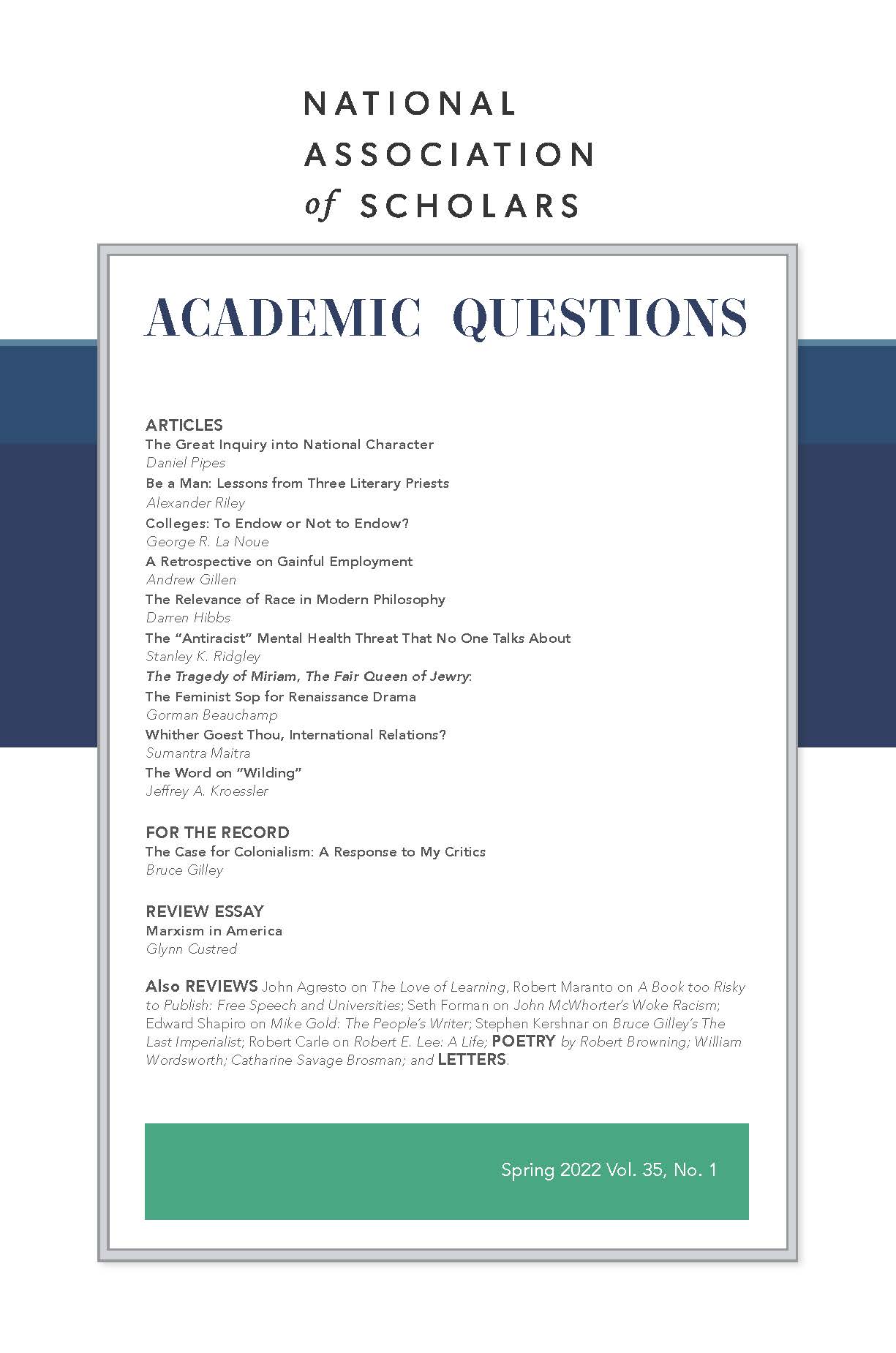The Winter 2021 issue carries a review by R. Lawrence Purdy of A Dubious Expediency; How Race Preferences Damage Higher Education, edited by Gail Heriot and Maimon Schwarzschild. In addressing the lead essay by John Ellis, “Starting down the Slippery Slope,” Purdy equates “affirmative action” and “race preferences,” and portrays Ellis's former support for one as the same as support for the other. But in his essay, Ellis asserts that at UCSC in 1977 he understood affirmative action as “outreach” to recruit more blacks, Hispanics, and women into the applicant pool—a pursuit sharply distinct from race preferences in admission.
“Our job was to look diligently for potential minority and female graduate students in places and in ways we might not have before, and to motivate them to apply,” Ellis writes, “but that was the end of the matter. They would sink or swim on their own merits in the application process.”
Soon, however, the pressure increased to admit more of these applicants, even if their credentials did not meet the generally expected standards, with the result that many dropped out of the program. What had originally been intended as “good” affirmative action turned into explicitly admitting women and minorities through group preference.
Ellis concludes that “there is no such thing” as “good” affirmative action, since even in “modest, outreach-only” form, it represents a departure from the “principle” of “equal consideration” of all students at every stage.
We regret that our review blurred this distinction and we apologize to Professor Ellis.













